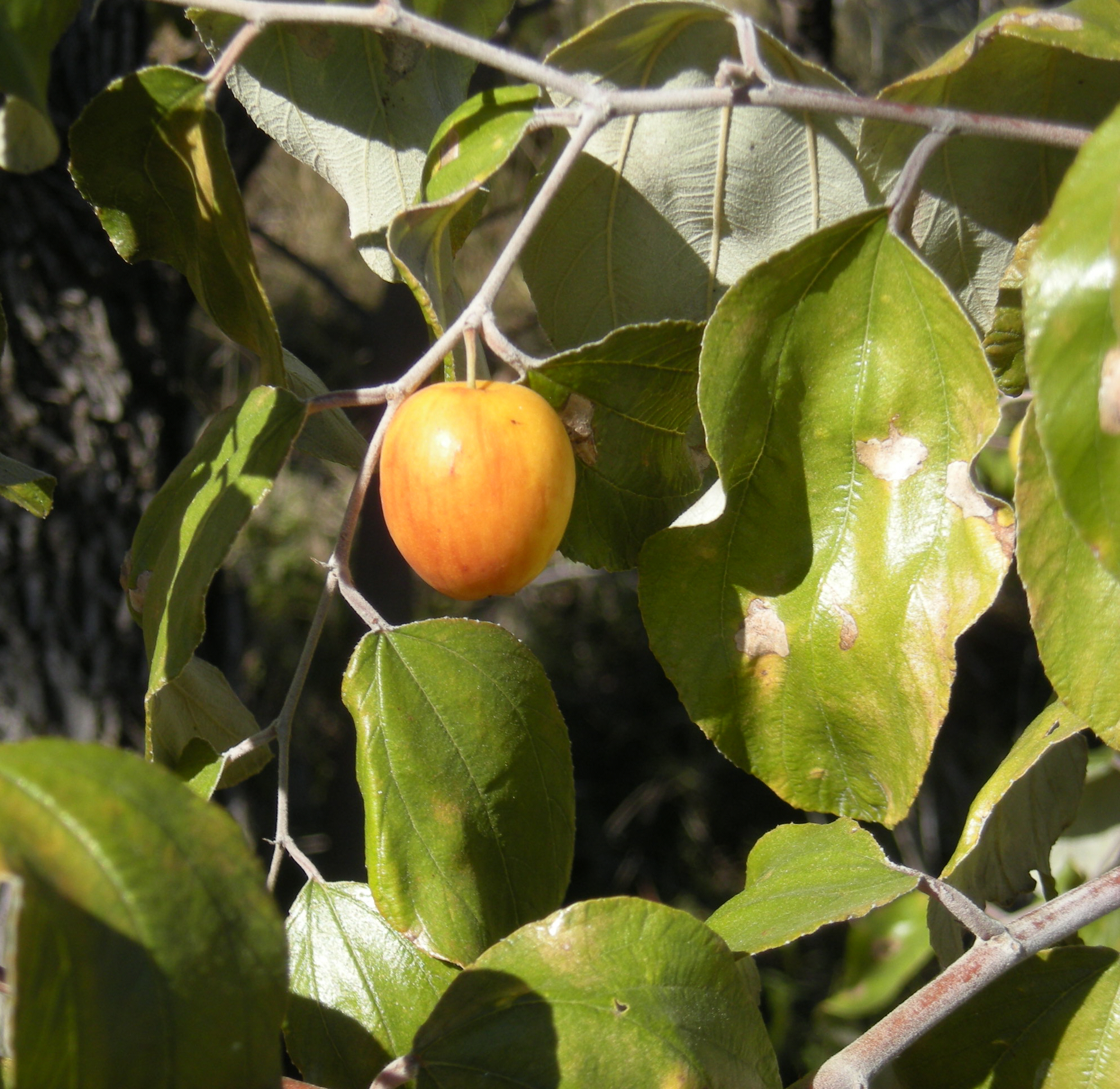- Ziziphus mauritiana
Taxobox
name = "Ziziphus mauritiana"

image_width = 250px
regnum =Plant ae
divisio = Magnoliophyta
classis =Magnoliopsida
ordo =Rosales
familia =Rhamnaceae
genus = "Ziziphus "
species = "Z. mauritiana"
status = Secure
binomial = "Ziziphus mauritiana"
binomial_authority = Lam."Ziziphus mauritiana" (Ber, Boroi, Indian Jujube, Chinee Apple or Cottony Jujube) is a
tropical fruit tree species, belonging to the familyRhamnaceae . It is native to southernAsia (mainlyIndia ) though it is also cultivated and naturalised elsewhere in the dry tropics, notably inAfrica . It is a serious environmental weed in Northern Australia.The tree grows very fast even in dry regions, reaching heights of 6-12 m with a lifespan of 25 years or more. The leaves are broadly ovate, 4-8 cm long, with a rounded apex. The
fruit is a soft, juicy,drupe that is 2.5 cm diameter and sweet in taste. The fruit ripen at different times even on a single tree and look golden yellow when fully ripe. The size and shape is variable, with selectedcultivar s having larger fruit. The fruit is eaten raw or pickled or used in beverages. It is quite nutritious and rich invitamin C .The fatty-acid methyl ester of Z. mauritiana seed oil meets all of the major
biodiesel requirements in the USA (ASTM D 6751-02, ASTM PS 121-99), Germany (DIN V 51606) and European Union (EN 14214). The average oil yield is 4.95 kg oil/tree or 1371 kg oil/hectare, and arid or semi-arid regions may be utilized due to its drought resistance.References
* [http://www.ars-grin.gov/cgi-bin/npgs/html/taxon.pl?42285 Germplasm Resources Information Network: "Ziziphus mauritiana"]
* [http://dx.doi.org/10.1016/j.biombioe.2005.05.001 Prospects and potential of fatty acid methyl esters of some non-traditional seed oils use as biodiesel in India]
Wikimedia Foundation. 2010.
